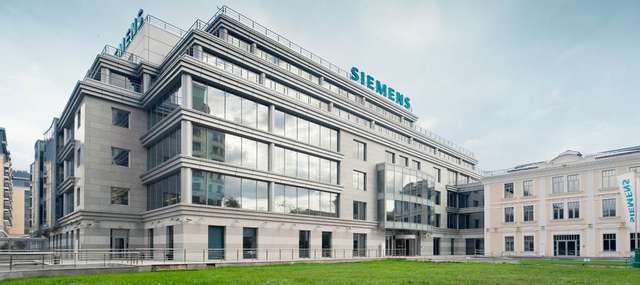
Will Siemens listen to appeals to withdraw from the Chinese market? Nothing could be further from the truth. The company's CEO, Roland Busch, announced that he would strive to increase the company's share in a very important market beyond the Great Wall.
Table of Contents
"I will defend our market share in China at all costs, and if possible, we will expand it," said Busch, who took over as CEO of Siemens at the end of 2021, becoming one of the key leaders of the German conglomerate.
A big piece of cake
His comments come at a time when major German companies are under increasing pressure to relocate and diversify their businesses away from China, in order to reduce their dependence on what they perceive as a geopolitically risky market, especially after their reliance on Russian gas came back to sting them.
However, Busch told the Financial Times that withdrawing from the market that accounts for 13 percent of the company's revenues is "out of the question."
"I will seek customers who push us to a higher level of innovation, who are demanding and looking for the next technology. In many cases, these are China," he said.
In recent years, Siemens has transformed from a sprawling engineering group that manufactured products such as washing machines into a technology company focused on developing digital tools for industrial applications.
In 2015, the company sold its 50 percent stake in a home appliances joint venture to Bosch, and the group still holds stakes in several of its former divisions that were spun off into independent entities. These include the Siemens Healthineers medical technology unit and Siemens Energy, which owns the renewable energy company Gamesa.
The German group, which employs over 311,000 people, raised its forecast for the second time this year thanks to margin growth in its intelligent infrastructure and digital industry units. The results helped mitigate global supply chain issues, allowing the company to trim its inflated order books. Siemens' stock price rose by one-third to around 150 euros last year.
Uncertain situation
China, where wages and labor costs have been gradually rising in recent years, has become particularly important for Siemens' digital industry division, which focuses on automation and generates roughly one-fifth of its revenue in the country.
Many companies, including Siemens, are seeking to relocate production from China to other Southeast Asian countries where wages are lower. Others are concerned that growing geopolitical tensions with the West over Taiwan and U.S. restrictions on China's access to advanced technology are impacting the country's profitability as a manufacturing base for exports.
Busch noted that the declining attractiveness of China as an investment destination for foreign manufacturers was one of the reasons why "advanced technology manufacturing" ranks high on Beijing's priority list.
"I'm not saying that China is deindustrializing," Busch said. With increasingly technologically advanced factories, the domestic industry in China could "defend its value but in a different way."
"China is doing its own work in the field of advanced technology manufacturing—it's clearly on the agenda," he added.






